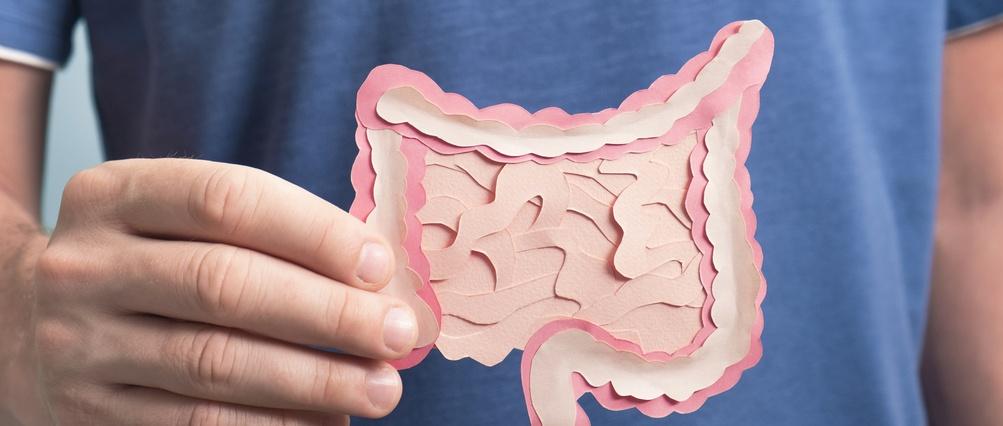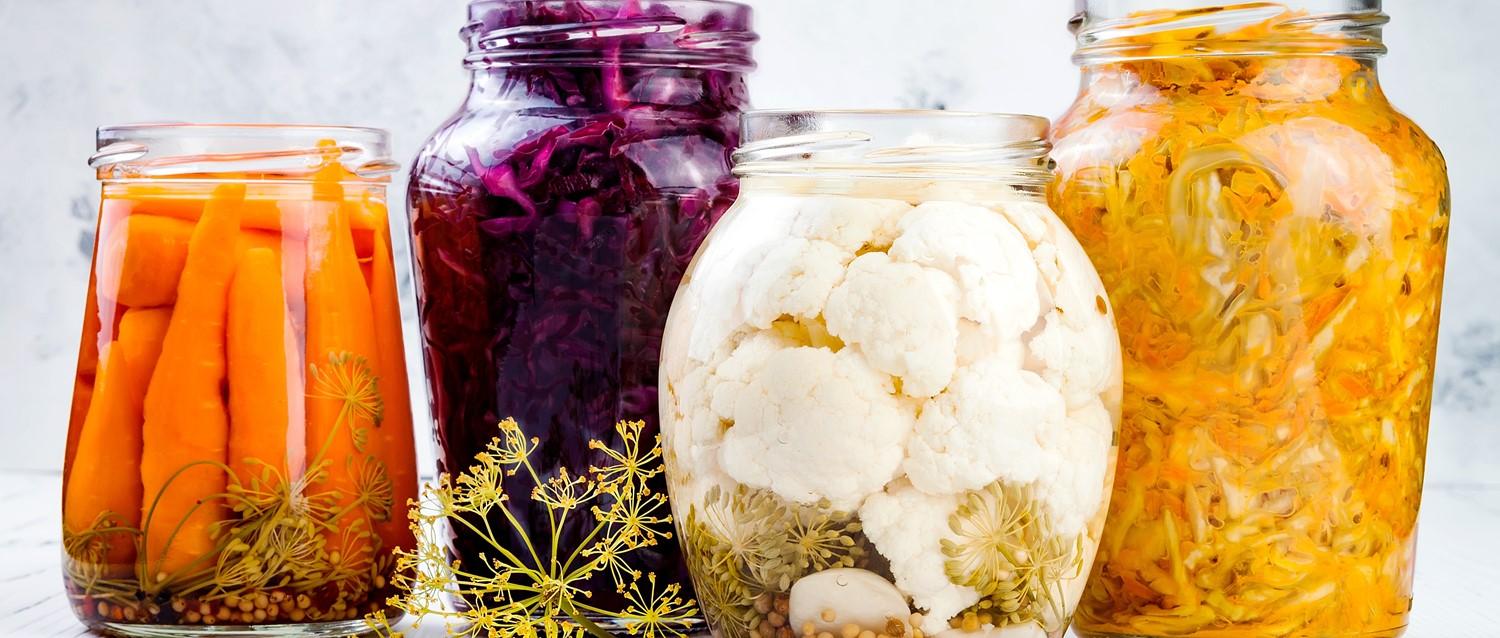
What is your gut microbiome?
Peer reviewed by Dr Krishna Vakharia, MRCGPAuthored by Victoria RawOriginally published 24 Jun 2024
Meets Patient’s editorial guidelines
- DownloadDownload
- Share
- Language
- Discussion
Let’s talk about something small that has a big impact on your health - the gut microbiome. This hidden universe of microbes plays an important role in your wellbeing. How you treat these tiny residents can make a world of difference to how you feel.
In this article:
Continue reading below
What is a microbiome?
The human microbiome is a collection of microorganisms - such as fungi, bacteria and viruses - which live inside their very own ecosystem in various parts of your body. Each part contains a one-of-a-kind network of microbes, working together for the good of your health. These unique little systems are constantly changing and reacting to what you eat, how you exercise and the medications you take.
Dr Saurabh Chatterjee, Professor of Environmental and Occupational Health, UC Irvine's Program in Public Health, says: "Trillions of bacteria, viruses and fungi live inside your gut, colonising different areas. They each have assigned behaviours and functions that help keep the body healthy."
Skin microbiome - lives on the surface of your body, protecting and hydrating your skin.
Oral microbiome - found in your mouth, it breaks down food and influences breath smell and tooth health.
Airway microbiome - lives in your nose, throat, and lungs and helps healthy breathing.
Gut microbiome - in your tummy, it helps digest food, supports the immune system and fights harmful bacteria.
Gut microbiome
Back to contentsThe gut microbiome is one of the most talked about microbiomes because of its effect on human health. The microbes in your gut (microbiota) help balance your good and bad bacteria. They break down complex foods like fibre that your body can't digest by itself, transforming them into short-chain fatty acids (SCFAs) which feed your gut cells. They also make some vitamins - such as vitamin K - and digestive enzymes to help your body function.
Up to 70% of your immune system also lives in your gut. Your gut microbiome plays a major role in immune function, sending messages to your immune cells to ward off harmful organisms (pathogens).
How do I know if my gut microbiome is healthy?
Several things can affect your gut health, including diet, genetics and antibiotics. If the microbes in your gut become unbalanced, this can cause conditions such as obesity, inflammatory bowel disease (IBD) and diabetes.
Chatterjee says: "Many diseases such as cancer, IBD, liver disease and even brain inflammation have been associated with an imbalanced gut microbiome."
Dr David D. Clarke, President, Psychophysiologic Disorders Association, warns that an unhealthy gut microbiome (dysbiosis), can cause digestive issues such as:
Bloating.
Wind.
Diarrhoea.
Constipation.
Abdominal pain.
Changes in the gut microbiome have also been associated with weight gain, tiredness, skin conditions, immune dysfunction, food intolerance, and mood disorders.
"These symptoms can be persistent and might fluctuate in intensity," he says. "However, in some cases they may be caused by something else, such as past or present life stress."
You can buy a test that analyses your gut health through a sample of your poo. Some diagnose specific issues - such as inflammatory bowel disease (IBD) - while others offer a general gut health picture. However, these tests are fairly new to the market. They are all varied and results can be inconsistent - so check whether they'll give the right information you want as they can be expensive.
Continue reading below
What harms your microbiome?
Back to contentsAntibiotics
Taking antibiotics can harm your gut's friendly bacteria. They can create an imbalance between good and bad bacteria, making it harder for your body to fight infections in the long run.
Dr Pamela Young, Action Rehab, drug detoxification and mental health specialist, explains: "Antibiotics are sometimes a necessity. However, some aren’t advanced enough to understand the difference between good and bad bacteria. Some antibiotics can target the necessary bacteria, but many harm the ones we need to stay healthy."
Chatterjee adds that too many antibiotics can cause your friendly bacteria to build up resistance, meaning they won't work as well. Since you need your good bacteria to stay healthy, you should use antibiotics as they are prescribed and finish the course. You shouldn't overuse antibiotics.
Alcohol
Drinking too much alcohol also throws your gut bacteria off balance. It can weaken your gut lining, letting harmful organisms leak out, causing liver inflammation.
Clarke advises that heavy alcohol consumption can reduce friendly bacteria such as Lactobacillus and Bifidobacterium, and increase harmful ones like Proteobacteria.
Stress
Your gut constantly communicates with your brain. It allows the brain to control digestion and immune function in the gut, and the gut microbes to influence the brain. Stress can disrupt this communication, which can change the mix of good and bad bacteria in the gut. This, in turn, can affect how the body responds to stress.
Clarke says stress can affect the gut ecosystem in two ways. It can increase or decrease the muscle contractions in the gut and lead to changes in the quantity and quality of a your nutrition - including alcohol consumption.
"All of these can harm the gut ecosystem," he says.
Does the gut microbiome affect mental health?
Back to contentsStudies have shown there's a two-way street between your gut microbiome and mood. The types of bacteria in your gut may influence your susceptibility to depression and anxiety. Those with a wider variety of gut bacteria are generally happier and less anxious1.
Dr Raj Dasgupta, Chief Medical Advisor for NCOA says: "There's a growing body of research connecting our gut microbiome's state to mental health through what's called the "gut-brain axis". Imbalances in gut bacteria have been increasingly associated with mental health conditions like depression and anxiety."
According to Clarke, many chemical messengers that carry signals from nerve to nerve (neurotransmitters) are produced in the gut. This includes serotonin, which plays a key role in mood regulation.
Chatterjee adds that health issues such as dementia, autism, and conditions such as Parkinson's and Alzheimer's have been shown to have an altered gut microbiome - though studies are ongoing.
Continue reading below
How to improve gut microbiome
Back to contentsHow you treat your gut microbiome is important for digestion, immunity, and your mood. Having a well-balanced and varied diet - along with a healthy lifestyle - is essential for a happy gut and overall well-being.
Here are some important ways to keep your gut microbiome thriving:
Fill your plate with prebiotics: Plant-based foods such as fruits, vegetables, legumes, whole grains, and nuts are packed with special fibres called prebiotics. Prebiotics are non-digestible carbohydrates that feed your friendly gut bacteria. By nourishing these good bacteria, you can keep your gut in balance.
Dr Lynn Bry, Director, Massachusetts Host-Microbiome Centre, says: "You may have heard of heard of eating a rainbow to include diverse fruits and vegetables - all of which contain plant fibres. A healthy microbiota is a diverse microbiota and one that has access to varied nutrients through what we eat. Part of the reason to include fibres in our diet is that they feed our gut microbiota."
Herbs and spices: Whole herbs like basil, cilantro and mint - along with spices such as black pepper, cumin and ginger - have been shown to have a prebiotic effect on the gut2.
Power up with probiotics - fermented foods which contain live bacteria and yeasts. Often found in yoghurt and supplements, these microbes can restore balance by feeding the good bacteria in your gut.
Examples of probiotics include:
Live culture yoghurt.
Kefir.
Sauerkraut.
Kimchi.
Kombucha.
Pickles.
Put aside processed foods - these tend to be low in fibre and filled with unhealthy fats and sugars. This disrupts the balance of good bacteria, which could damage the lining of your gut, causing it to leak. Leaky gut has been linked to inflammation throughout the body, which may contribute to diseases such as diabetes and heart disease3.
Cut back on sugar - certain foods with too much sugar can fuel the growth of bad bacteria. Chose natural sweeteners and limit your intake of sugary drinks.
Tackle stress - consider relaxation techniques like yoga, meditation, or deep breathing to manage stress effectively.
Sleep well - a good night's sleep can help balance your gut microbiome4.
Drink plenty of fluids - make sure you drink 6-8 glasses of water a day. Keeping your body hydrated helps gut digestion run smoothly, meaning your body can absorb nutrients more efficiently.
Move your body - regular physical activity is good for your gut. Exercise improves circulation, which supports the digestive system and growth of good bacteria. For best results, get at least 30 minutes of exercise a day, over five days a week.
Further reading
Back to contents1. Martin et al: The Role of Diet on the Gut Microbiome, Mood and Happiness
2. Dahl et al: Gut microbial modulation by culinary herbs and spices
3. Ferranti et al: 20 Things you Didn’t Know About the Human gut Microbiome
Patient picks for Gut health

Diet and nutrition
The link between gut health and happiness
Research is increasingly suggesting a connection between the mind and the gut - and it's all to do with the trillions of bacteria found there. So could taking better care of the microbiome improve your mental health?
by Natalie Healey

Diet and nutrition
How gut bacteria affect mood, focus and brain health
There is emerging scientific evidence that the gut microbiome can influence brain health - from mood and focus to neurological diseases such as multiple sclerosis and Parkinson's. We ask the experts about this link and how best to look after the gut bacteria to support brain health.
by Sally Turner
Continue reading below
Article history
The information on this page is peer reviewed by qualified clinicians.
Next review due: 24 Jun 2027
24 Jun 2024 | Originally published
Authored by:
Victoria RawPeer reviewed by
Dr Krishna Vakharia, MRCGP

Ask, share, connect.
Browse discussions, ask questions, and share experiences across hundreds of health topics.

Feeling unwell?
Assess your symptoms online for free
Sign up to the Patient newsletter
Your weekly dose of clear, trustworthy health advice - written to help you feel informed, confident and in control.
By subscribing you accept our Privacy Policy. You can unsubscribe at any time. We never sell your data.